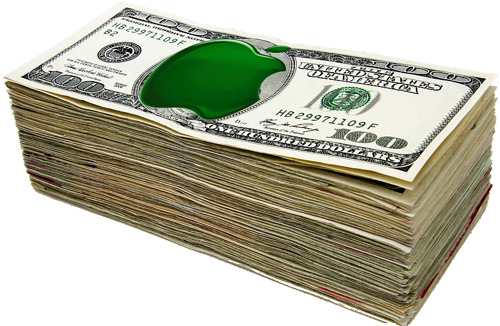Let’s say that you decided to open up a lemonade stand. So you go out and buy a nice cart, dishes, and plenty of lemons and sugar. You are now the principle shareholder of the business because you paid for all of the assets (cart & dishes) and the inventory (lemons and sugar). Now let’s say that at around noon time you see the next door neighbor kid outside shooting baskets. Since the sun is hot and you are kind of tired of waiting on all the customers, you offer the neighbor kid five dollars an hour to run your lemonade stand for the rest of the day. He becomes your chief executive. He will execute your wishes for the rest of the day in exchange for payment.
Now let’s say that it starts raining and not one single customer visits the lemonade stand for the rest of the day. Your Chief Executive still gets his $5 per hour because that was the deal. If you spent $200 on your assets and inventory but only brought in $50 of revenue, well, that’s too bad for you. You’re the one whose idea it was to go out and spend all that money. The neighbor boy still gets his $5/hr and didn’t lose a nickel. On the flip side, no matter how much money the lemonade stand makes, your Chief Executive will only get what was promised him, $5 an hour. All risk of loss or profit lies with whoever paid for the assets and the inventory.
Now in real life shareholders will typically give their CEO’s lucrative stock options to get him to think more like an owner. But I have a saying, if you can’t sell something you don’t really own it. A CEO, even one as successful as Tim Cook, always owns a minority share in the company and can’t sell the company any more than you or I could sell the Grand Canyon. The only exceptions to this are perhaps founder CEO’s like Facebook’s Mark Zuckerberg who actually started the company. So a CEO may think like an owner of the company but he really isn’t. He can’t sell the company on his own, he can’t unilaterally decide what to do with the profits, and he can be replaced. The stockholders own him.
Which brings us to the question of what to do about Apple’s $178 billion dollar pile of cash. The money obviously belongs to the shareholders. So why isn’t the board of directors screaming for a return of the profits? I would answer this question with another question. What would the shareholders do with the money? Put it in the bank to earn 2% rate of return? Put it into the stock market and risk losing some of their investment? Purchase some AAA rated bonds and get 3%? Where else can they make close to the same return they are getting with Apple with a similar risk factor?
Apple has consistently been cranking out quarter after quarter of earning over 20% of every dollar in net income from operations. They are consistently hitting close to 20% return on assets and when you have over $200 billion dollars in assets that is no easy feat. The only entity that I can think of who rivals Apple’s ability to generate cash is the Federal Reserve.
So it seems for now that the Apple shareholders are content to let Tim Cook and his management team decide what to do with that cash. If Jerry Jones had a head coach for his Dallas Cowboys that kept winning the Super Bowl every year even he would follow the old rule “if it ain’t broke, don’t fix it”.



 RSS Feed
RSS Feed